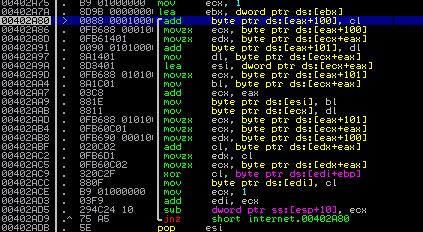DarkHotel: Analyzing the targeted cyber espionage campaign against high-profile individuals and organizations
Overview:

DarkHotel is a highly sophisticated cyber espionage campaign that has been targeting high-profile individuals and organizations globally since at least 2007. This campaign employs advanced techniques, including social engineering and zero-day exploits, to infiltrate networks and steal sensitive information for espionage purposes.
Company Overview:
DarkHotel operates as a well-organized and persistent threat actor group, primarily targeting executives, government officials, and employees of prominent companies. They are known for their strategic selection of targets and the use of custom malware tailored to bypass traditional security measures.
Timeline:
2007: DarkHotel campaign is first observed, initially targeting business travelers in Asia.
Ongoing: The campaign continues to evolve its tactics and expand its target base, remaining active and adaptive to advancements in cybersecurity measures.
Impact:

DarkHotel attacks have significant repercussions for victims:
Data Compromise: Sensitive information such as intellectual property, financial data, and confidential communications is compromised, leading to potential financial losses and reputational damage.
Business Disruption: Targeted organizations experience disruptions to their operations and may face regulatory penalties or legal repercussions due to the breach.
Loss of Trust: Clients, partners, and stakeholders may lose trust in the organization's ability to safeguard sensitive information, impacting future relationships and business opportunities.

Measures Taken by Victim Company:
If Victim Company falls victim to a DarkHotel attack, it would implement the following measures:
Threat Detection: Utilize advanced threat detection tools and techniques to identify and mitigate suspicious activities within the network.
Endpoint Protection: Deploy endpoint security solutions to detect and block malware, including zero-day exploits and custom malware associated with DarkHotel.
Network Segmentation: Implement network segmentation to limit the lateral movement of attackers within the network and contain the spread of the attack.
Incident Response Plan: Activate an incident response plan to coordinate the response efforts, including containment, investigation, and recovery.
Security Awareness Training: Provide ongoing security awareness training to employees to recognize and report phishing attempts and other social engineering tactics used by DarkHotel.
What We Learned:
Analyzing the DarkHotel campaign provides valuable insights:
Sophistication of Threat Actors: DarkHotel demonstrates the capabilities of highly sophisticated threat actors who continuously evolve their tactics to evade detection.
Need for Proactive Defense: Organizations must adopt proactive defense measures, including continuous monitoring and threat intelligence sharing, to defend against advanced threats like DarkHotel.
Personal Takeaway:
As cybersecurity professionals, studying the DarkHotel campaign underscores the importance of vigilance and preparedness in defending against advanced cyber threats. It emphasizes the need for ongoing training, robust security protocols, and a culture of cybersecurity awareness within organizations.
Conclusion:
The DarkHotel cyber espionage campaign represents a formidable threat to high-profile individuals and organizations worldwide. By understanding its tactics, implementing proactive defense measures, and fostering a culture of cybersecurity, organizations can mitigate the risk of falling victim to such sophisticated attacks.
